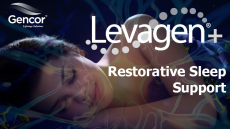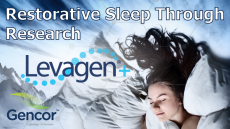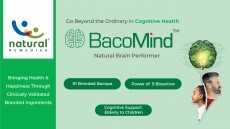Study links dietary vitamin K with decreased neurofilament-light chain

Published in the journal Frontiers in Nutrition, a recent study of data from the National Health and Nutrition Examination Survey (NHANES) reported that increasing vitamin K may be a viable strategy for neuroprotection, particularly in aging.
“These findings suggest that higher vitamin K intake may potentially mitigate neurodegenerative processes,” wrote the authors from China.
Neurodegeneration biomarkers
Neurofilaments are structural components of neurons and are composed of three protein chains: neurofilament-light chain, heavy chain and medium chain.
Neurofilament-light chain (NfL) is a reliable biomarker for degenerative diseases such as dementia, which become more prevalent with age.
Higher levels of vitamin K, particularly menaquinone-4 in the brain, have been associated with a reduced risk of dementia and cognitive impairment. The protective effects of vitamin K are thought to be due to its roles in sphingolipid metabolism, anti-inflammatory properties and protection against oxidative stress.
Although both vitamin K and NfL are important for neural health, the relationship between them has not been thoroughly explored, however, it is hypothesized that vitamin K, due to its antioxidant and anti-inflammatory properties, might influence the release of NfL.
Study details
The study included 1,533 U.S. participants with a median age of 46 years from the NHANES 2013-2014 cycle.
Using dietary recall interviews, the researchers identified a participant median dietary intake of vitamin K of 81.6 micrograms a day (μg/d), which is below the recommended adequate intake (AI) of 90 μg/d for adult females and 120 μg/d for males, according to American dietary guidelines.
The scientists collected blood samples and used a highly sensitive immunoassay to analyze NfL levels.
The results showed an inverse association between dietary vitamin K intake and serum NfL, reaching a plateau at intakes of more than 200 μg/d.
“The relationship between dietary vitamin K intake and serum NfL levels was stronger in the population of middle-aged and older adults,” the authors wrote.
They suggested that vitamin K's neuroprotective effects may involve promoting neuron-protective proteins and supporting sphingolipid synthesis, both crucial for neural cell health, but noted that further research is needed given that the study's cross-sectional design limited the ability to establish causality.
Vitamin K and cognitive function
Vitamin K can have beneficial effects on neuronal integrity and function, neuroscientist and applied microbiologist Dr. Miguel Toribio-Mateas told to Nutraingredients.
"Vitamin K is primarily known for its role in blood clotting, but its involvement in brain health has been gaining interest," he said.
"One of the key ways vitamin K impacts cognitive function is through its role in the synthesis of sphingolipids, which are essential components of brain cell membranes. This process helps maintain cell integrity and facilitates efficient communication between neurons, which is crucial for cognitive processes like learning and memory."
He explained that vitamin K may also support cognitive function by exhibiting antioxidant and anti-inflammatory properties and modulating neurotransmitter pathways. He also stressed the importance of gut health, as the gut microbiota synthesizes vitamin K.
"As we age, the body's ability to absorb and utilize vitamin K may decline, therefore ensuring adequate vitamin K intake could be a valuable strategy to support cognitive function in older adults," he added.
Source: Frontiers in Nutrition
Volume 11 - 2024 | doi: 10.3389/fnut.2024.1396707
“Dietary vitamin K intake is associated with decreased neurofilament light chain among middle-aged and older adults from the NHANES.”
Authors: S. Lin et al.











